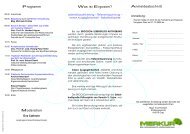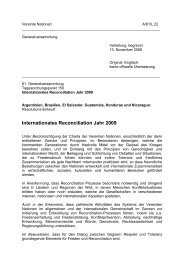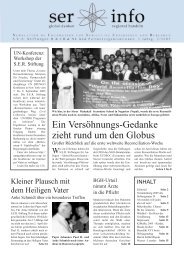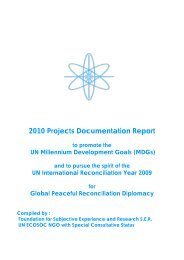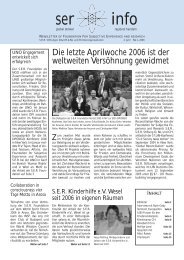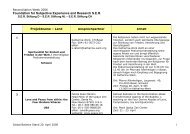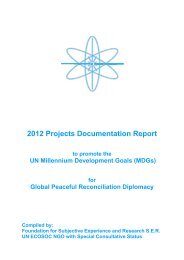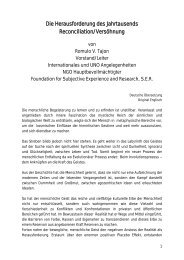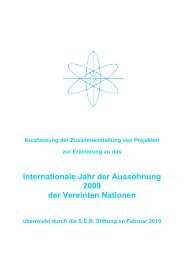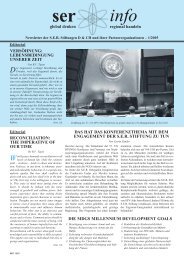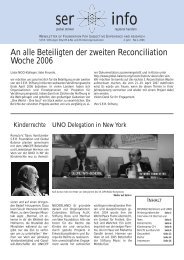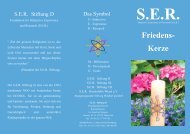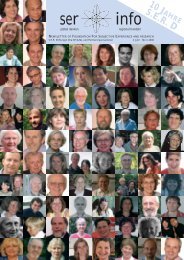Deutsche - Global Balance
Deutsche - Global Balance
Deutsche - Global Balance
Erfolgreiche ePaper selbst erstellen
Machen Sie aus Ihren PDF Publikationen ein blätterbares Flipbook mit unserer einzigartigen Google optimierten e-Paper Software.
At Africa in Motion 2009 we included a number of screenings and events that confront issues<br />
of trauma, conflict and reconciliation. On Saturday 24th October 2009 we hosted an<br />
interdisciplinary Symposium on the Realities and Representations of Reconciliation in Africa.<br />
The symposium aimed to foster discussion and understanding of new research dealing with<br />
the various realities and representations of reconciliation in Africa. A number of recent films,<br />
novels and other forms of art have sought to represent in varying ways the traumas of conflict<br />
and war of the postcolonial African states and the attempts of reconciliation commissions<br />
towards peace, truth, justice and forgiveness.<br />
At the symposium, we touched on the problems and challenges facing artistic<br />
representations of these complex topics as well as the different contexts and consequences<br />
of it in Africa and in its diasporas. A number of high-profile international scholars presented<br />
their work on these topics while Jacqueline Maingard, a senior lecturer at Bristol University<br />
specialising in South African cinema, presented in her keynote address a lucid overview of<br />
TRC films and representations of atrocities in Africa.<br />
Piotr Cieplak’s paper on Rwandan films dealing with the genocide posed difficult questions:<br />
can film represent trauma; is it effective; does it reach the right people’ is it too early to start<br />
using artistic ways to overcome the atrocities in Rwanda? John Masterson continued the<br />
focus with his presentation on Rwandan literature. Cara Moyer discussed South African films<br />
dealing with the TRC like Homecoming and Ubuntu’s Wounds, while Sarah Longair<br />
elaborated on cultural institutions such as the Number Four Prison museum in South Africa<br />
as ways of documenting, commemorating and dealing with the past. Albert Oikelome’s paper<br />
looked at Nigerian hiphop as an art form promoting peace in the Niger Delta region. We also<br />
found out from Tobias Robert Klein about themes of reconciliation in Ghanaian literature, and<br />
Amy Schwatzott expanded on her research of Mozambican art made from recycled weapons.<br />
The combination of the festival and symposium, the artistic and the theoretical, enabled us to<br />
think through representations of atrocities and war, and of brave artistic ways of dealing with<br />
these events and their representations.<br />
The screening of Between Joyce and Remembrance on the evening of the symposium<br />
continued the theme, and informed all the symposium speakers and attendees very directly<br />
of the consequences of the apartheid regime and the effects of the TRC on a family severely<br />
traumatised by the murder of their son by the secret police. As Between Joyce and<br />
125



